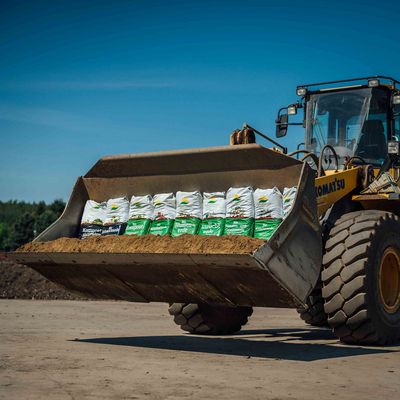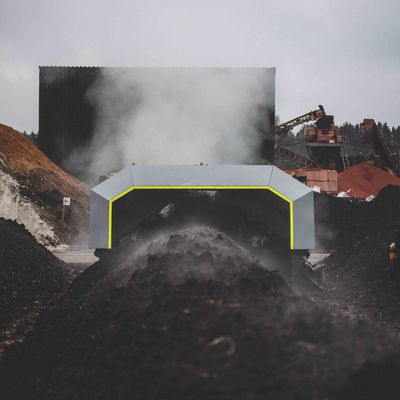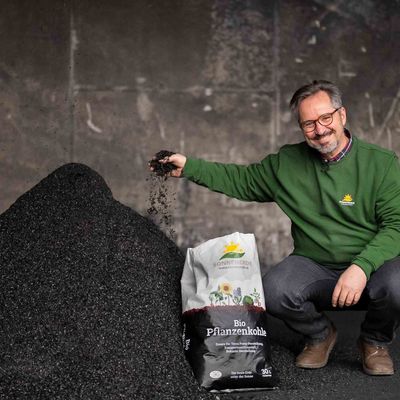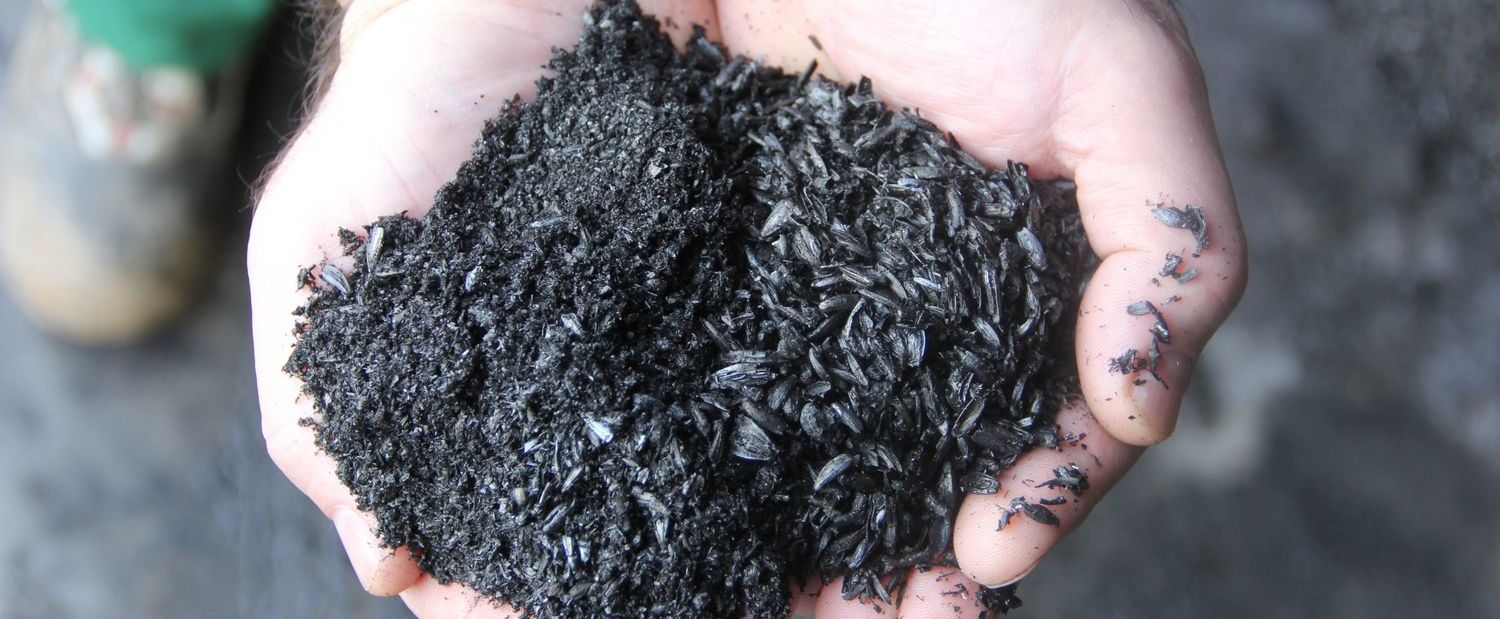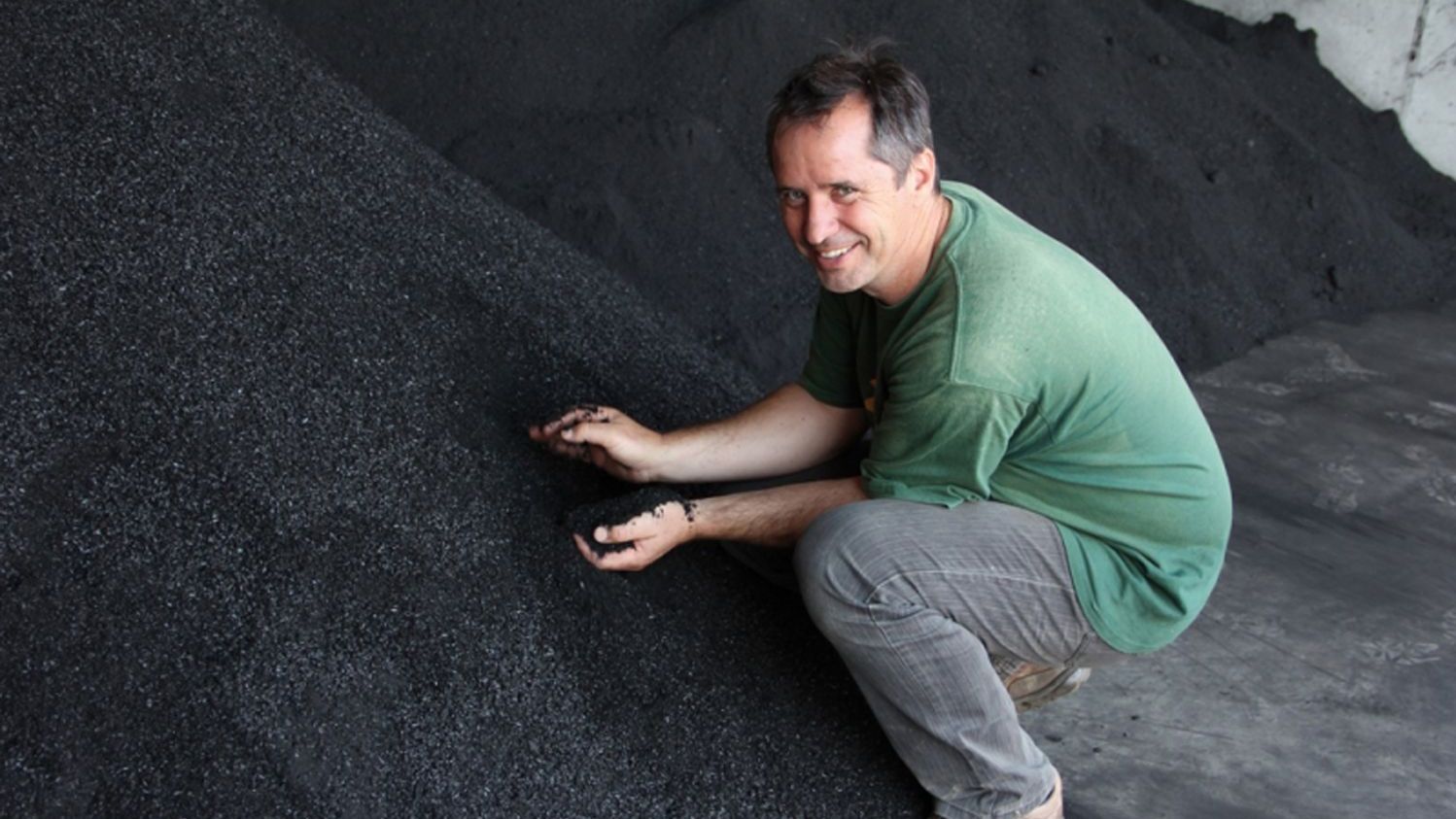Knowledge about biochar
Biochar is not a nutrient, but rather an ideal habitat for desirable (aerobic) microorganisms due to its large surface area. Added nutrients are initially stored and can therefore no longer be lost. This can significantly increase the efficiency of fertilization.
Caution! Direct application of biochar to the soil can lead to negative effects, as the charcoal must first be "charged" with nutrients and microbiology. Only when the biochar is saturated can it develop its positive effect. We therefore do not recommend using it directly, but in combination with an organic fertilizer.
When biochar is used correctly, the humus content and soil fertility increase rapidly. This is reflected in an improved soil structure (the soil becomes looser), an improved water absorption capacity and an improved water storage capacity. The plants become more resistant to diseases and pests. Plant growth remains healthy and yields stable, especially in years with unfavorable weather conditions.
Biochar as compost additive
As we have been able to prove in our own test series, the addition of 10-20% biochar can significantly reduce nutrient losses during composting by up to 50%. The odor during composting is significantly reduced or completely absorbed immediately after application (from an addition of just 5%). Material composted with biochar always smells very intensely of forest soil. The finished compost has a clear growth-promoting effect on weak eaters such as carrots, onions, herbs, beans or peas even in the first year of use. The soil treated with this type of compost improves from year to year (= "terra preta effect"), and from the second year after application, positive effects on yield can also be expected for heavy eaters.
Biochar for bokashi
According to our own tests, the addition of biochar can reduce nitrogen losses during fermentation to "zero". The lactic acid bacteria accumulate in the biochar and can therefore take effect for a longer period of time after the Bokashi application. A quantity of 10 vol% biochar is usually recommended here too.
Biochar for manure treatment
The effect of odor and nutrient binding can be put to excellent use in stable management. This is not just about N-binding, but also about improving the climate in the barn. The use of biochar also promotes the decomposition of manure, and the reduction of losses can promote the build-up of humus in the field. A combination with rock flour would be perfect, as this also provides the necessary trace elements and minerals that are essential for the development of soil fertility and humus formation. The microbiological composition is demonstrably positively influenced by the combination of biochar and rock flour.
Quality of biochar
Our biochar is regularly tested in accordance with the EBC (European Biochar Certificate) and may be used in accordance with the European positive list of permitted soil additives in organic farming.
The most important parameter is the absence of harmful substances, especially PAHs (polycyclic aromatic hydrocarbons), which are formed during the production process and are extremely carcinogenic. In our process (Pyreg), the formation of these PAHs could be excluded due to the process, as the PAHs formed are in the gas phase and this gas is extracted from the coal immediately after formation and burned in the FLOX burner without leaving any residue.

